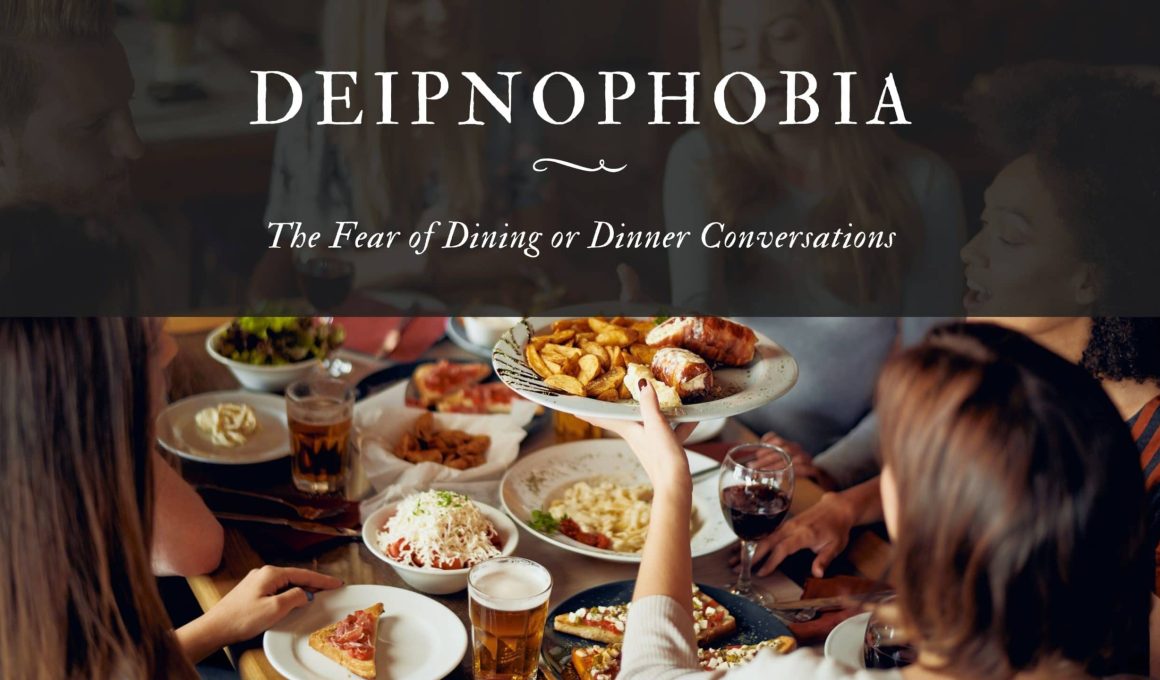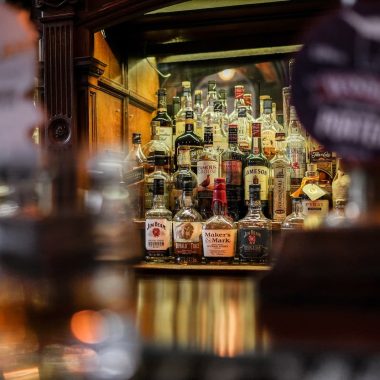Deipnophobia is best defined as the irrational fear of dining or dinner conversations. This has become one of the most unusual but quite real phobias among us.
It has tortured people of both genders when sitting around the dinner table. We’ll look at the word’s origin to further understand what this phone is about.
The word Deipnophobia is derived from two Greek words: ‘dipinto,’ which is translated to mean ‘dinner conversation,’ and the word ‘Phobos,’ which means ‘deep fear‘ or ‘aversion.’
Some people also believe that Deipnophobia can be interpreted as a fear of banquets or large meals.
Deipnophobia is categorized as a social phobia that causes the person dealing with it to feel awkward while they eat or dine in public or before new faces.
The person is mostly afraid of how he or she may look while eating and is also deeply scared of being criticized.
The fear, in this case, is especially exacerbated when the individual with a phobia dines outside or can’t avoid situations that require s/he to eat with strangers.
Needless to say, deipnophobia is a highly debilitating fear that may cause the person suffering from it to avoid all types of social situations.
Common Causes of Deipnophobia
People familiar with phobias and how they are will know that no phobia has a definite cause.
The most common assumed cause of any social phobia, such as the fear of dining or dinner conversations, is an erstwhile traumatic episode that most likely happened in their childhood.
The phobic might have been mocked or even rebuked by an older adult for not eating properly or paying attention to etiquette when dining with others or outdoors.
The episode will likely stay deeply etched in his/her mind, causing a deep-rooted fear that prevents them from being themselves at social events that involve eating before strangers.
Each time an opportunity arises, the mind of the phobic will recollect that feeling repeated, and that leads to a full-blown panic attack.
Even scientists and doctors are unable to entirely explain how a social phobia like Deipnophobia starts or arises. Sometimes, such phobias might appear randomly (out of the blue).
It is also assumed that a combination of genes, environment, brain chemistry, and biological and physiological factors may contribute to the development of this phobia.
An inherited predisposition for tension that is chronically increased can lead to Deipnophobia.
Poor upbringing as a result of a broken family, divorce, or death that results in either one or both parents moving away may also lead to inadequate or non-existent social skills.
If the child is unaware of how to behave, talk, or eat during dinner or formal events, it can lead to a morbid fear of dining or dinner conversation.
Also, an upbringing with bullying, little love, child abuse, and overprotective attitudes may lead to Deipnophobia.
A child may likely learn to avoid certain social situations if he or she notices her/his parents always avoid the same.
Symptoms of Deipnophobia
Every person thinks that immediately they can eat outside in a restaurant; they have conquered a case of Deipnophobia.
These phobes do not understand that the struggle is one they will deal with on a day in day out basis.
The symptoms of fear of dining or dinner conversations (Deipnophobia) can vary from one individual to another.
Typical symptoms of this fear include:
- Freezing up randomly at social events
- Avoidance behavior- the person with this phobia tends to go to considerable lengths to skip social events that have to do with dining out.
- Shaking, trembling, sweating, or full-blown panic attack.
- Trying too hard to participate in a conversation can cause a person with this phobia to say something that may be considered socially unacceptable. In such cases, their awkwardness will become one of many self-fulfilling prophecies.
- Studies have revealed that many people who deal with social phobias such as Deipnophobia end up feeling very lonely as they often avoid dates and may never get married.
- The phobic may also have lots of problems at his/her place of work. S/he might end up avoiding social gatherings that involve dinners. This may make them easily pass up on promotions.
- To lessen anxiety, the phobic may turn to alcohol or other hard drugs. An abuse such as this can undermine confidence and may even lead to more social problems.
- One other common side effect of social phobia is Depression.
Available Treatment for Deipnophobia
Remember that the fear of dinner or dinner conversations has no defined cure. In fact, no social phobia has a defined cure.
However, some methods of treatment have been found to help people manage or recover from different kinds of phobias.
Two common treatment options are available for people who fear dining or dinner conversations.
Both are discussed below:
Drug Therapy
Even though no medicines have been designed to help cure this or any other phobia, some medications may help to reduce anxiety and tension, which are common symptoms of this phobia.
However, drugs are never a long-term solution because they do not treat the main cause of your phobia.
Therefore, it is not rare for drug therapy to be supplemented with therapy like cognitive behavior therapy, which may increase the chances of success.
Behavior Therapy
This is a standard therapy method that has proven good results in the reduction of anxiety symptoms.
Here, the therapist must examine how the symptoms arose at the start and what must have triggered them.
It has also been found that behavior therapy helps the person dealing with a phobia to deal with all the likely symptoms, such as anxiety-provoking thoughts, acquiring social skills, practicing overcoming avoidance, and confronting situations that may give rise to symptoms.
Patients have to expend energy and to do so; they have to be exposed to conditions that will likely trigger symptoms so that they can feel better. It is worth noting that this can take a lot of energy and effort on the part of the patient.
Some other therapies have proven to yield good results for overcoming Deipnophobia, and they include hypnotherapy and neuro-linguistic programming.
Patients must work out their thoughts on the different types of phobia treatment before taking it up with a professional therapist.









